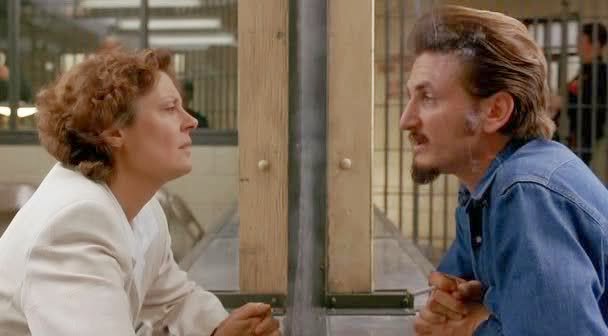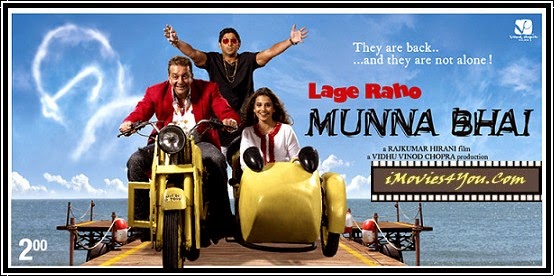Dead Man Walking
Perhaps two reasons for this…
-As I expressed in one of my previous reviews, I don’t like
big budget mindless action movies. Majority of Hollywood is filled with stuffs
like: Sci-fi movies, big war movies, movies with beefed up insects, animals,
and humans (e.g. Hulk), dinosaurs, anacondas (Ophidiophobic!), crocodiles and sharks.
I develop severe anaphylactic reaction when I see movies like that!
-Nonetheless, let me confess, I do watch lots of Hollywood
movies. My recent favorite list: Captain Phillips, Hurt locker, Zero dark
thirty, Mud, Gravity and Argo. I don’t write about them because, these movies
are popular and my idea is to introduce less known films to my friends.
Dead Man Walking:
This movie talks about the death sentence.
All started with a heated discussion regarding death penalty
in our whatsApp GMKMC 91 group, when one Iranian woman was hanged recently. As
expected, in line with common public’s view, most of them in our group were for
death penalty. Whenever this topic comes for discussion we see some of them aggressively
express their opinion as, severe punishments would definitely bring down the
crime rates. And most of them strongly believe, that is the only way to
eliminate heinous law-breakings.
A small group of people think otherwise.
Capital punishment or death sentence is a never ending
controversial topic. Public always divide into two groups. In most of the
countries – even in US – majority support capital punishment. Only European
countries abolished the capital punishment.
The main argument against it is - how government can kill a
fellow human being, even though that person has committed an atrocious crime. Do we
have the moral right to take away a life given by God? There is a possibility
of error in judgment and once death penalty is executed, no way it can be reverted.
Statistics reveal socially marginalized people are more prone to get death
sentence compared to rich, powerful people. If we feel these criminals are
dangerous to the society and they may commit the same crime again, why don’t we
keep them in prison lifelong?
The pro death sentence group argues by saying with the
technology available like DNA mapping, errors are unlikely. And keeping such people in jail lifelong would
result in wastage of tax payer’s money???!!! “An eye for an eye”: the fear of
death will decrease the crime burden.
Hence, the idea of viewing or reviewing this movie was to
understand both the sides. After watching it, I felt this is the perfect film
for that.
This movie was made based on a book of the same title,
written by Sister Helen Prejean, a
catholic nun, from her firsthand experience with convicts facing capital
punishment and the families involved.
This is more of a documentary
movie than a crime drama. Tim Robbins directed and co-produced
it and it was released in the year 1995.
This film was well received by both critics and the audience.There were four nominations from this film (male and female lead actors, best director
and the best original sound track - Bruce Springsteen) at the 68th
academy awards and it won one - best female actor, Susan Sarandon.
Story
Sister Helen (Susan
Sarandon), a nun, social worker receives a letter asking for help, from a
convict (Mathew Poncelet- Sean Penn)
who has been given death sentence for rape and murder of a teenage couple. The
other man (Vitello) involved in that
crime gets life imprisonment. Dealing with a convict facing death, is new for Sister
Helen. She meets him, interacts with him and feels he might be an innocent;
decides to help him. Arranges a lawyer.
She talks to him and tries to find out the truth. He
categorically denies committing that crime, blames his friend Vitello for that.
From this point, the movie closely follows the emotions of the convict,
convict’s family and victims’ family. When she tries to hear from all the
sides, the victims’ family misunderstand and ill-treat her. Convict’s family
shows caution initially and opens up later.
She and her lawyer fail to convince the court to revert the
death sentence. As a last resort Poncelet asks for a lie detector test, which
turns out to be inconclusive. She continues as a counselor- spiritual adviser,
during his last few days.
Finally, the day of execution is fixed. Poncelet meets his
family and spends some time, a day before his death. On the day of punishment “the dead man” walks to the cell and
sits on an Electric chair. In front of everyone including the victims’ family
he is killed by injecting drugs and Electric shock. The END.
This is the second movie I watched which deals with capital
punishment. The first one was “The Life
of David Gale”- a college
professor fights against death rows.
Unlike the life of David gale, this film is neutral. Does
not take a stand. Analyses from both the angles. That is the biggest strength of
this movie.
What touched me most was the emotions of a dying man, on his
last few days were captured realistically. Sean Penn as Mathew Poncelet lives
the character, importantly does not overdo. The pain of a dying man, dying
young leaving his family, young child- was clearly evident. Fear, anger,
frustration and helplessness – he goes through all kind of emotions. He tries
every trick in the book to save himself from death; does not reveal the truth
till the last day. Only when he exhausts everything, he accepts the truth about his crime to Sister Helen. Two things we
can notice here. One is human survival instinct, which hopes for a miracle till
the last minute. Second, a dying person never lies.
The main character sister Helen witnesses his emotions and
understands it. Tries to help him to cope with the guilt feeling and other
emotions; tries to calm him and relieve the pain of a dying soul. She teaches
him -" unless you accept the truth and ask for forgiveness your soul won’t be at
peace"; which he does in the end. Her feeling for him does not change even after
she knows about his crime. Susan Sarandon with her effortless performance
overshadows everyone in the film including Sean Penn. The movie is portrayed
through her eyes.
The anger of the victims' parents is understandable towards
Sister Helen when she tries to help him. Till the end they don’t understand her
neutral stand, talks to her and asks her - which side you belong to. Like most
of us they too don’t believe in neutrality.
The movie starts with a wonderful Ghazal song sung by Nusrat
Fateh Ali Khan. Throughout the film Hindustani music has a soothing effect;
matches the slow paced, soul searching story.
Poncelet tells the victims’ parents when he is taken for the
execution, hopefully my death would
bring peace to you. Even though the film is neutral, the director indirectly
asks few questions. By taking revenge, by killing the criminal – can we
compensate the loss suffered by victims’ parents? Then what about the convict
family’s loss?
Before execution Poncelet tells the audience witnessing the
death sentence,” Killing is bad; whether
I do, you do or government does”.
I agree with what Poncelet says.
What about you?
Cheers!
14-11-14,
9pm.






Comments
Post a Comment